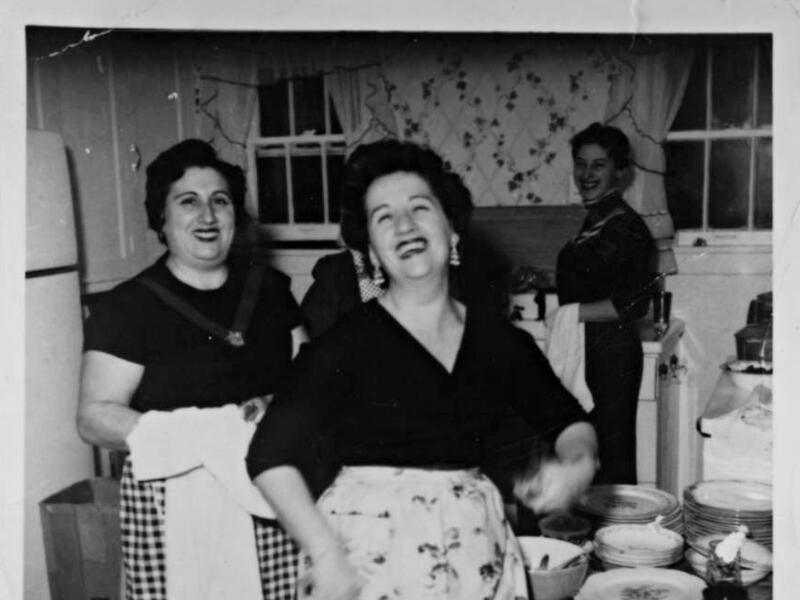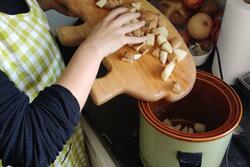Let’s Fight for Gender Equality Across All Branches of Judaism
In mid-October, around the time of Simchat Torah, a music video from popular Orthodox composer Baruch Levine circulated on Jewish Twitter. The video and song was meant to honor the wives of Kollel scholars (men who have devoted their life to studying Torah). A section of the video depicts a woman feeding her children and cleaning her house—except we never see the woman’s face or body, only her hands.
The video got attention from Jewish women on Twitter who have spoken out about how this depiction (or lack thereof) harms women and girls in ultra-Orthodox communities. Nechama Eitan, for example, noted how the video suggests the best way women can engage in religious practice is by supporting their families. One of the opening lines of the song, “not always heard, not always seen,” also illustrates a problem ultra-Orthodox women have been drawing attention to in the past several years—that rules about modesty eliminate representations of women from the media, thereby dampening their voices.
I didn’t grow up in a religiously observant community, and I’m not able to fully understand or express the impact such rhetoric has on the lives of women and girls who have. While I’m a firm believer that a shared faith connects me to Jewish women regardless of our level of observance, I also recognize that there are aspects of our Jewish identities that are vastly different.
Yet as I watched the video and read the reactions to it on Twitter, I couldn’t help but connect some of the issues women were raising to issues I’ve seen in Reform Jewish spaces—namely, how women are seen as caretakers and homemakers, even in places that have sought to erase gender inequalities.
This year, I’m lucky to be living in Germany, and I’ve found myself graciously welcomed into the Jewish communities of the city I’m living in. I spent the High Holidays at a Reform synagogue, and I was invited to break the fast there after Yom Kippur. While there were aspects of the meal that were distinctly German—instead of bagels with cream cheese, we ate pretzels with brie—for the most part, I felt like I could have been celebrating with my Jewish community back in New York. Most notably similar was the plate of lox that was cleared in a matter of minutes, before I even had a chance to grab food. In the wake of atonement, I'd been given a warm and familial environment in which to begin the New Year.
Still, I was peripherally aware of how that warm setting had been created. The meal was in part a potluck—people could volunteer to bring food—but a lot of work had gone into setting up the buffet, setting the tables, and reheating food. While we were finishing Ne’ilah services, I could hear a group of mostly (if not entirely) women in the kitchen, making sure everything was ready to be served.
This is perhaps an aspect of Reform Jewish culture that you would not find in Orthodox spaces, in which women and men performing work (such as cooking or preparing food) on a religious holiday is forbidden. But women tend to take the lead on household work in many Jewish spaces, whether that be before or during the holiday. I can think back to my own Reform upbringing and remember many holidays when women similarly prepared potlucks as services were finished, or religious school celebrations where mothers would drop off food along with their children.
I don’t want to overlook how much gender norms have changed in the last fifty-plus years in Jewish communities. Thanks to equal education opportunities and the efforts of many Jewish feminists, women can engage in Jewish worship in ways that are equal to men, whether as congregants, as students in yeshivas, or even as rabbis. When women perform home labor, it’s often out of choice, not something that’s assumed or forced on them.
Nor do I think any of the women I've mentioned felt pushed out of religious spaces in which they wanted to participate. For some women, providing food and care for family and community is a source of pride. I myself find immense joy in being able to share the food I cook with the people I love. An incredibly important part of the feminist fight is to create a world in which women have the choice to do what they want, whether that be leading services or preparing meals.
With all of this in mind, I still think it’s important to question how we think about gender equality in religious spaces. Even if providing for one’s family can act as a source of pride for Jewish women, there is often an unspoken expectation that women will provide household care in ways that don’t apply to men.
When we talk about differences between various sects of Judaism, we often frame Reform Judaism and other “progressive” branches of Judaism as more feminist than the more “traditional” ones. Doing so ignores the women who are proud of both their feminism and their religious identities. But even more than that, such a framework ignores structural and cultural similarities within the different branches that allow for pervasive (if not always intentional) forms of oppression. While we can’t always speak to the experiences other Jewish women have had in their own communities, it’s important to remember that our fights always have been, and always will be, connected.







